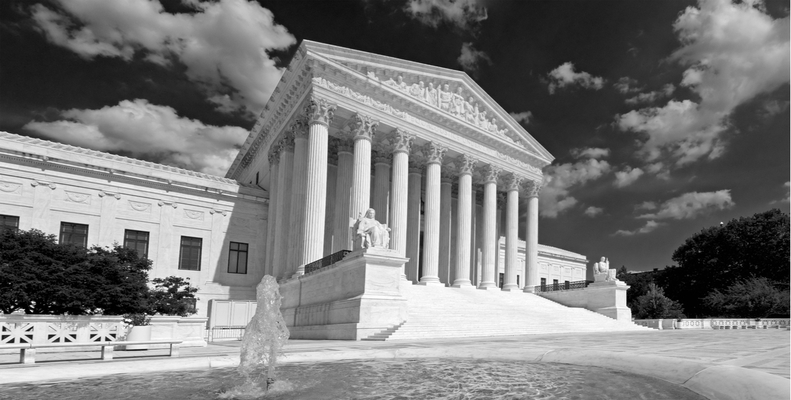Sir Isaac Newton posited that “for every action, there is an equal and opposite reaction.” My teachers taught it as a law of physics. But it turns out that it applies to 21st century American politics too: For every executive action, there is an equal and opposite judicial injunction.
In just the past few months, executive actions (those authorized by Article II of the Constitution) have been judicially enjoined from
- Defunding institutional racism,
- Combating voter fraud,
- Deporting illegal alien terrorists,
- Sending foreign agitators home,
- Preventing academic antisemitism, and
- Prohibiting boys from showering with non-consenting girls.
This is not the normal checks and balances our founding fathers intended to provide accountability. It is the one branch of government which is not elected, declaring itself supreme over the branches which are elected. District judges are undermining self-governance by issuing orders which neither the Constitution, nor any legislation grants them the authority for.
An election was held just 6 months ago, in which “we the people” chose the policies that we wished to be governed by – for at least the next couple of years. But using nationwide injunctions, district judges are simply saying “No.” They are nullifying the results of the last election – not because they should – but because they can. They have become the looters preying on the weak – not because its right – but because the police are powerless to stop them.
Chase Jennings has a great article up at Redstate: “Coequal Branches? It’s Time for Trump to Stick It to the Judiciary.” He makes a convincing argument that district judges are exceeding their constitutional authority, and points out the absurdity of a coequal branch of government preventing the President from performing his duties. Jennings suggests that it’s time for the President to make rogue judges pay for their bad behavior. Okay, I’ll play along. How?
How can the guy that runs the government’s executive functions “stick it to the judiciary”? He has the constitutional power to appoint judges, but not to fire them. He could arrest them for obstruction of justice, but like himself, they enjoy absolute immunity while performing their duties. Besides, were they to be indicted, the case of rogue judges would be adjudicated by other potentially rogue judges. I don’t see how that achieves anything.
So, the chief executive “sticking it to the judiciary” would come down to a contest of raw power. How much power would the public allow the president to apply?
- He could stand outside their houses and call for social unrest.
- He could refuse to enforce any judicial ruling (not just the ones about his decisions) until the Supreme Court brings the district courts under control.
- He could order the National Finance Center (which is one of his departments) to withhold the paychecks of rogue judges.
- He could even claim that rogue judges are engaging in illegal acts, and use civil asset forfeiture to seize their property.
But would any of that reestablish constitutional order, or promote social harmony? Or would it just escalate the conflict and create a much more dangerous crisis?
Besides, the executive branch hasn’t been without its own transgressions recently. Remember when religious observance was cancelled because of a virus? It would not necessarily be in the public’s best interest for the executive branch to have supremacy over the judicial branch. The founders made the three branches equal for a reason.
Maybe the legislative branch – which created the district courts – could “stick it to the judiciary.” You know … just enough that they start acting as the apolitical arbiters of justice that they’re supposed to be. Congress has the constitutional power to remove any misbehaving judge from bench. It only takes 67 percent of the Senators to decide to remove a judge who is serving the political wishes of 49 percent of the Senators. Oops! That math doesn’t really work, does it?
It is highly unlikely that coequal branches of government will succeed at imposing ethical behavior on each other – especially when all three have given the others reason to distrust them.
The reality is that when the kiddies get into a brawl, it’s up to mom and dad to tell them to play nice. But when government branches square off against each other, who is mom and dad?
Maybe a coalition of smaller governments could provide adult supervision – say 50 of them. The Constitution specifically grants the states the authority to collectively make the federal government behave. That power is found in the second clause of Article V. Wouldn’t it be far better for “we the people” to reestablish constitutional order via an Article V convention, rather than letting our three branches of government duke it out, while hoping that the outcome is in our best interest?
If you would like to help make an Article V convention to reign in government overreach a reality, visit here to see how. Sign the petition, write your state legislator, and consider volunteering.






